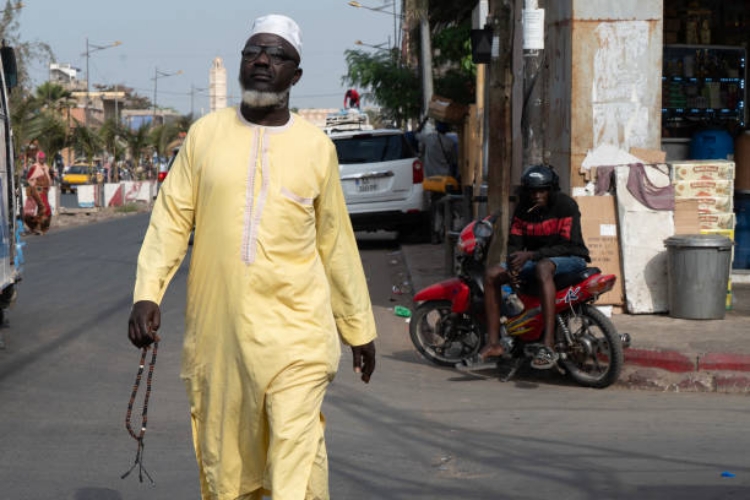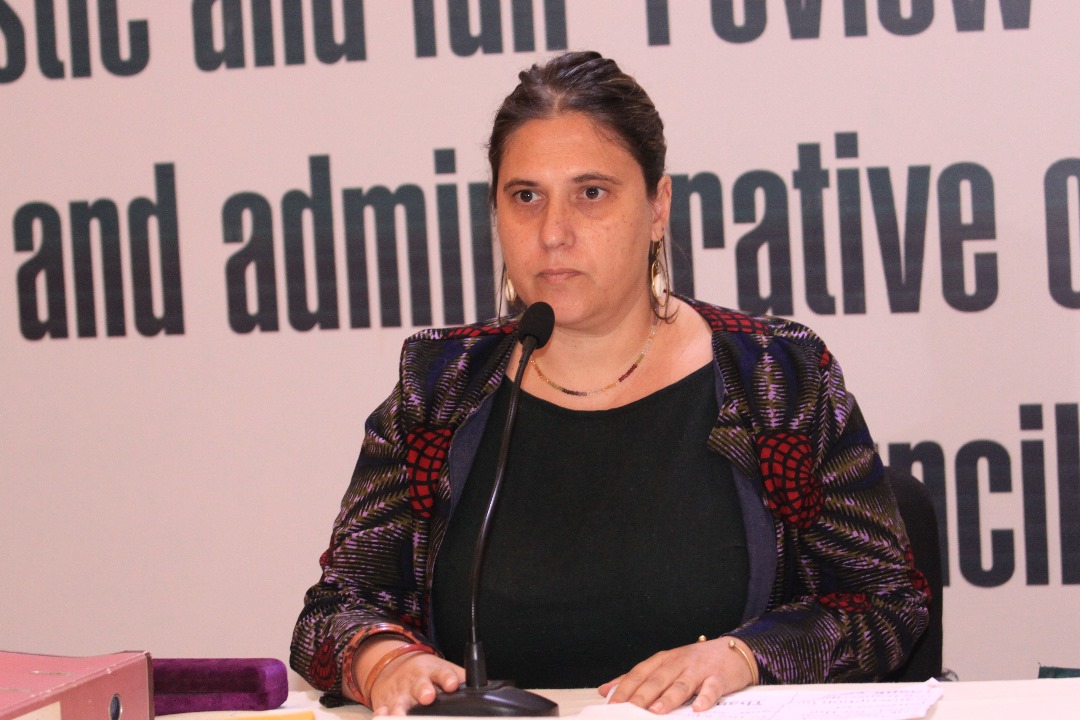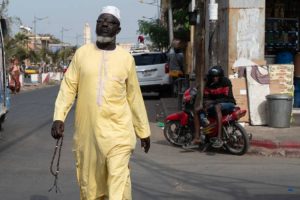Gambiaj.com – (Banjul, The Gambia) – The Local Government Commission of Inquiry continued its probe into local government councils, focusing on the financial and procurement processes of an EU-funded project under the Banjul City Council (BCC).
During the session, Silvia Llopart Gracia, director of finance for the Mbolo Association, testified on the Memorandum of Understanding (MOU) between Mbolo, the Ostend City Project, and BCC, which pertained to the stalled Future Banjul Project. Lead Counsel Patrick Gomez led the questioning, scrutinizing procurement procedures and financial disbursements.
Procurement Irregularities and Non-Compliance
Gracia defended her organization’s procurement practices, stating that Mbolo followed an operational manual incorporating both Gambian Public Procurement Authority (GPPA) regulations and international standards. However, under intense questioning, she admitted that Mbolo had failed to submit required procurement forms to the GPPA.
The MOU, signed under an EU-backed initiative, mandated adherence to GPPA rules in addition to EU procurement standards.
Gomez pointed out that failing to obtain multiple quotations for high-cost procurements constituted a breach of agreement. Gracia conceded that Mbolo had not fully complied with these requirements, raising concerns about transparency in the procurement process.
Discrepancies in Financial Records
The inquiry also examined financial disbursements, revealing inconsistencies in Mbolo‘s reported expenditure timeline. Gracia initially claimed financial transactions began in July 2023, but documents indicated payments as early as February 2022. These included major purchases such as energy-efficient fridges and freezers.
Gracia acknowledged that only 50% of the agreed funding had been received, with the remainder withheld due to implementation challenges.
The MOU was ultimately terminated under Clause 8 due to these delays. Gracia cited project hurdles, particularly the delayed renovations at Crab Island, which hampered training sessions.
Challenges in Training Implementation
The inquiry also highlighted training issues related to waste management. Mbolo had conducted training sessions despite logistical setbacks, including an unprepared venue and the unfortunate passing of a key staff member. Gracia, who has extensive experience in waste management from her work in Catalonia and Barcelona, defended the training’s effectiveness but acknowledged difficulties.
A major point of contention was the qualifications of Lamin Sonko, the assistant trainer. Gracia admitted that when he was hired in early 2022, he was still undergoing training in waste management. Despite this, he was allowed to lead sessions in 2023, a decision that Gomez questioned. Gracia explained that Sonko functioned more as a translator and assistant rather than the primary trainer.
Further investigation revealed changes to the project’s scope, particularly a canceled pilot program for organic waste management in schools. Gracia was unable to provide documentation supporting these amendments and called on project managers to clarify the modifications.
Additional Testimonies and Further Scrutiny
In a related session, Malang Sambou of the Mbolo Foundation faced questioning on the implementation and financial handling of a BCC partnership under the CityLink Banjul-Ostend project. Lead Counsel Gomez examined an unsigned health screening report and scrutinized the qualifications of Lamine A. Sonko, who had led waste management training despite lacking formal certification.
Sambou admitted that Sonko was not certified but argued that his experience and internal training at Mbolo justified his role. Financial records, including payment vouchers to Innovax Global Health and the Gambia Red Cross Society, were reviewed. Gomez pressed for clearer financial statements after noting inconsistencies and unspecified expenditures.
Sambou acknowledged execution challenges, particularly incomplete renovations at Crab Island, which delayed planned activities. A termination letter from CityLink Ostend Banjul was presented, citing project delays and requesting the return of unspent funds. Mbolo voluntarily refunded D211,836.96.
The commission also inquired about salary payments made after the MOU’s commencement and sought clarification on a waste management initiative involving organic waste collection and composting, a model initially piloted in Tujereng and later expanded to the Kanifing Municipal Council (KMC).
Further Investigations Pending
The session concluded with Gracia agreeing to return on April 9 to submit additional financial documents and clarify discrepancies in her testimony. As the inquiry continues, scrutiny remains on the procurement and financial procedures tied to the MOU, with potential implications for governance and transparency in donor-funded projects.
The commission’s findings are expected to shape future regulatory measures to prevent similar lapses in accountability within local government projects.










